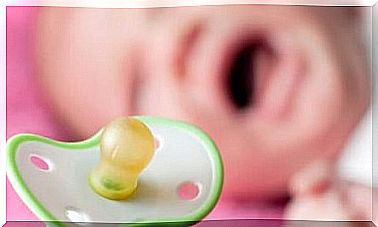Hypothyroidism During Pregnancy: How To Treat It

All people have a thyroid gland, and it has the task of producing thyroid hormones. If you do not produce enough, you suffer from a condition called hypothyroidism.
Although hypothyroidism is a common condition – 1 in 100 fertile women has it – in many cases it often goes untreated because the symptoms go unnoticed. According to specialists, women can sometimes not distinguish the symptoms of hypothyroidism from symptoms of stress or depression. Because the symptoms are subtle, women can ignore them for a long time.
Therefore, it is important to pay attention to all symptoms. Pay special attention to how regular your menstrual cycle is. If it is not, it is definitely a sign that your hormones are not under control.
Hypothyroidism can affect fertility
There are many ways that hypothyroidism can affect pregnancy. One is that it can prevent the egg from being fertilized. In fact, hypothyroidism is considered to be a very common cause of infertility among women.
If a woman’s body does not have enough thyroid hormones, it cannot produce enough eggs. As a result, anovulation occurs, which is the term for when an egg is not released. This of course makes it impossible for the sperm to fertilize the egg because there is no egg to penetrate.
Hypothyroidism also causes a markedly irregular menstruation. This is often one of the symptoms that makes a woman realize that she is suffering from the condition.

The thyroid gland can also affect pregnancy
Although hypothyroidism can affect fertility, there are women with the condition who can still become pregnant.
However, it can cause problems with the pregnancy itself and fetal development. Hypothyroidism increases the risk of miscarriage during the first three months. It also increases the risk that the mother will have high blood pressure during pregnancy.
The importance of thyroid hormones in pregnancy
During the first trimester, the mother completely supplies the baby with thyroid hormones from her own thyroid gland. After these first three months have passed – and it is these that are the most sensitive – the baby will start producing its own thyroid hormones.
However, the baby will need nutrients from the mother throughout the pregnancy. The mother’s body helps the baby to grow in a healthy way. Therefore, we recommend that pregnant women with hypothyroidism be extra careful to get enough iron. It is important for the production of thyroid hormones.
Treatment of hypothyroidism during pregnancy
Hypothyroidism is a chronic condition, such as diabetes. This means that we have no cure for it, but the condition can be checked.
Its treatment, whether you are pregnant or not, consists of replacing the thyroid hormone with synthetic levothyroxine. Your endocrinologist will help you find the best dose and treatment for you. This is the specialist who treats your hormonal condition.

Tip
- Many endocrinologists recommend that women who want to become pregnant get tested to detect any thyroid problems. These samples can detect both an underactive and an overactive thyroid gland.
- Women with goiter should have tests done to monitor their condition. This is a symptom of an enlarged thyroid gland.
- It is important that women undergoing treatment for hypothyroidism check their hormone levels before becoming pregnant. Your doctor is the only one who can ensure that you have a good hormone balance.
- If you are pregnant and have hypothyroidism, see a doctor as soon as possible. They will help you treat and manage your condition during this new phase of your life.
- Try not to worry too much. With the right treatment, you and your baby will stay healthy.
- You should of course make sure that you take the medicine that your doctor prescribes you correctly. Remember to take your medicine with you even if you go on holiday.









